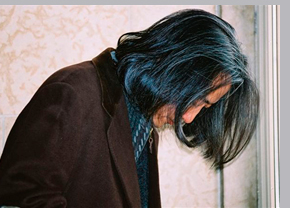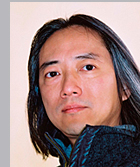



Pianist Hung-Kuan Chen’s career - as well as his life -- has been a vivid example of the concept of yin-and-yang. In that Chinese
philosophy, apparent opposites are actually complementary: each fulfills a need in the other; one cannot exist without the other.
Mr. Chen embodies a synthesis of seeming opposites that coalesce into a unique artistic personality.
Hung-Kuan Chen was born in Taipei and raised in Germany. He established a strong connection to Germanic Classicism in his
early studies which he integrated with the sensibility of organic Chinese philosophy. “I’m Chinese by birth,” he says, “but I’m
actually more European. I’ve read and studied a tremendous amount of the great literature and language of Germany.”
One of the most honored pianists of his generation, Mr. Chen won top prizes in the Arthur Rubinstein, Busoni, and Geza Anda
International Piano Competitions, and in the Young Concert Artists International Piano Auditions. He also won prizes in the
Queen Elisabeth, Montreal International Musical and Van Cliburn International Piano Competitions, as well as an Avery Fisher
Career Grant.
Mr. Chen has performed in many of the world’s foremost concert venues,
including Carnegie Hall in New York, the Kennedy Center in Washington,
D.C., Davies Symphony Hall in San Francisco, the Tonhalle in Zürich, the
Herkulesaal in Munich, the Sala Verdi in Milan, Suntory Hall in Tokyo,
National Concert Hall in Taipei, Shanghai Concert Hall and the Forbidden
City Concert Hall in Beijing. He was the first to perform the Rachmaninoff
Third and Beethoven Fourth Piano Concertos in Taipei, and gave the
Shanghai premiere of the Bartók Second Piano Concerto. His plans for the
2015-2016 season include solo and orchestral performances in China and
Switzerland, in Boston, and at Aspen and Yale. He is also preparing new
recordings to be made in Switzerland in 2016.
Hung-Kuan Chen has enjoyed fruitful artistic collaborations with, among others, Christoph Eschenbach,
Hans Graf, George Cleve, Joseph Silverstein, David Shifrin, Roman Totenberg, ChoLiang Lin, the Shanghai
Quartet, Sui Lan and Andrew Parrott. His most meaningful artistic partnership is with his wife, Tema
Blackstone, with whom he frequently performs as a piano duo.
Hundreds of students worldwide have benefitted from Hung-Kuan Chen’s knowledge and love of music.
“Teaching and performing complement each other,” he declares. “Teaching is sharing, and by sharing,
our search continues in a more objective way. When I share, I become the beneficiary of the results of the investigation and the
continued questioning. This benefits my playing, as I’m often coming up with new ideas and insights.”
Mr. Chen is currently on the faculty of The Juilliard School and is a visiting professor at Yale, and is also on the faculty for
Artemisia Akademie at Yale. He previously served as Chair of the piano department of Shanghai Conservatory, and was on the
faculty of New England Conservatory. He has adjudicated prominent international piano competitions such as the Van Cliburn,
Busoni, Shanghai, and Honens. His 2015 summer teaching engagements included the Chinese Foundation for the Arts, Piano
Summer Institute in New Paltz, International Music Akademie in Lichtenstein and Aspen Music Festival. Among notable
pianists he has taught or coached are Yuja Wang, Sean Chen and Niu Niu.
In 1992, Hung-Kuan Chen suffered a hand injury which caused neurological damage and eventually resulted in focal dystonia.
Through meditation and his own unique research, he was able to heal and return to his life as a concert artist. His first post-
accident solo recital in 1998 received rave reviews and he was described as a transformed artist.
Mr. Chen addresses his extraordinary journey in these terms: “What gave me the drive and courage to find a cure? On one side
was the curiosity about the human body, awareness and consciousness; and on the other, my desire to continue my art. This
was the biggest learning curve I had ever encountered. It meant having to detach from ego and ambition. It taught me to
embrace all that comes to me and be extremely grateful…to notice the tiny things - those details which create a full life and are
often missed by most people. To be ‘in the moment’ sounds clichéd but is not. And as part of the search for meaning, the joy of
being able to play again - that was a true miracle.”
A many-faceted individual, Hung-Kuan has painted and drawn, danced, and played several other instruments. He is a serious
chef, bakes his own bread and homebrews beer. He is an artisan of home improvement, a skilled woodworker and an
electronics whiz. He is a meticulous piano tuner, a knowledgeable jazz enthusiast, and an avid hiker. He brings the same level
of curiosity and dedication to both spiritual and worldly pursuits.